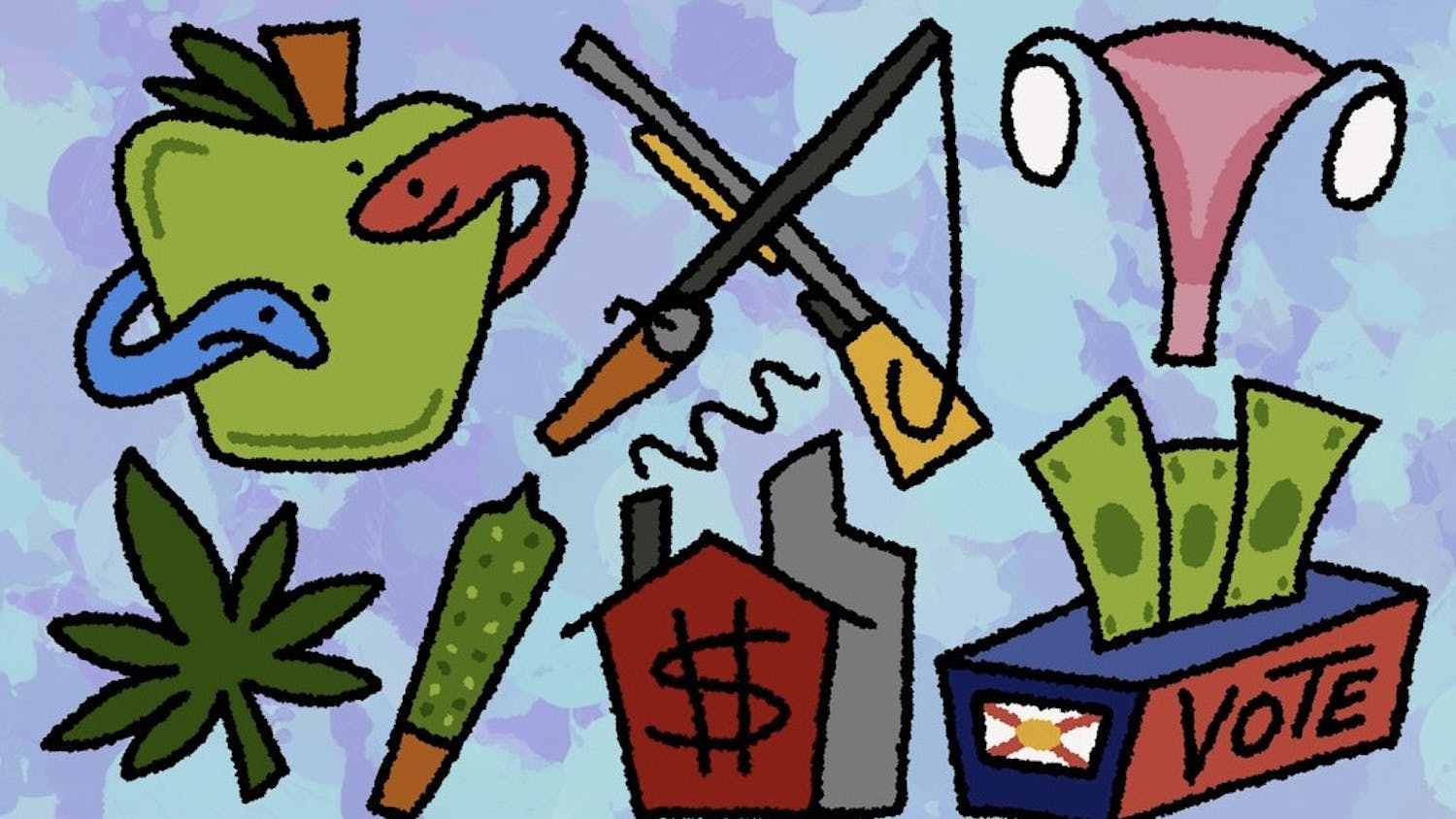On Oct. 8, Lindsay Alexander wrote a column opposing the approval of Amendment 2, which would legalize medical marijuana in Florida. Alexander’s concerns about Amendment 2 are misguided.
I have studied Amendment 2 and many other states’ medical marijuana legislation, and I can confidently say that she is mistaken about the amendment’s meaning and about the consequences for our state that passing Amendment 2 will have.
California was the first state to pass medical marijuana legislation. Proposition 215 passed in 1996, and it was a sparse bill that provided little regulatory guidance. The predictable result, as Alexander noted, was a poorly regulated system that allows virtually anyone to obtain access to marijuana.
However, much has changed in the ensuing 20 years. Since the passage of Prop 215, 22 other states have legalized medicinal marijuana. None of them have suffered the adverse consequences that California did. Florida waited patiently during that time and will benefit from the wisdom garnered from watching 23 diverse legislative bodies provide compassionate access to marijuana for their citizens who need it most. Amendment 2 reflects that wisdom and will ensure that Florida does not end up like California.
Amendment 2 draws on that wellspring of experiential wisdom to provide Florida with a solid foundation and firm, clear guidelines for the Department of Health to construct a safe, secure medical marijuana system. The fine print will not open the floodgates to allow anyone access to marijuana as Alexander fears.
The amendment would allow the use of medical marijuana for individuals with “conditions for which a physician believes that the medical use of marijuana would likely outweigh the potential health risks for a patient.”
Those extra words, which Alexander seemingly ignored, are very important. They build circumscribed flexibility into the amendment to allow greater access with only a patient’s doctor’s carefully considered permission. Proposition 215 lacked this language, and that is but one of many reasons why Florida’s medical marijuana system will not turn out like California’s.
Alexander is wrong to characterize Amendment 2 as “reactive.” Florida is employing a measured process that is similar to, albeit more difficult to accomplish because amendments are difficult to pass in Florida, the processes used by nearly every other state that has legalized medical marijuana.
In addition, Florida will benefit from groups like Florida For Care who bring together diverse experts to explain the regulatory process, ensuring that Florida avoids pitfalls and unintended consequences.
Alexander’s concerns over the efficacy of Amendment 2 are admirable. She echoes the concerns of many Floridians who agree that we should allow compassionate use of medical marijuana but not at the cost of our state’s moral and social fabric. Her active engagement in this issue bolsters the argument that Florida will not follow in California’s footsteps.
Amendment 2 anticipates the thoughtful concerns of Florida residents like Alexander and provides opportunity for their concerns to be addressed through the legislative and rulemaking process. Rather than deny countless patients across Florida, like her mother, access to beneficial treatment, Alexander should vote yes on 2, stay engaged and help make Florida’s medical marijuana system an exemplary model for the rest of the country.
Christopher Johns is a third-year UF law student.
[A version of this story ran on page 6on 10/13/2014]





